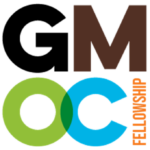In addition to the initiatives above, NMAC’s Treatment division advocates for HIV research and treatment and educates the public through our webinar series, biweekly articles in NMAC’s newsletter, and social media interventions.
Treatment Division is hiring a new Associate Manager.
Treatment is Critical to Living and Thriving with HIV
Through decades of biomedical advances and community advocacy, treatment options for people living with HIV have made it possible to live a “normal life expectancy”. However, to thrive and stay healthy while living with HIV, it is essential to be knowledgeable about HIV treatment and how it can impact viral load, CD4 counts, and quality of life.
Treatment education is one aspect of the holistic approach to living healthily with HIV. A healthy diet, exercise, mental health care, community, and a sense of purpose complement HIV treatment.
Treatment Leads to Undetectable = Untransmittable or U=U
“U=U” stands for “Undetectable = Untransmittable,” a term used in the context of living with HIV/AIDS. It means that a person living with HIV has an undetectable viral load due to adherence to effective HIV treatment, and the virus cannot be transmitted through sex.
The ability for an individual’s virus level to be undetectable and therefore untransmittable reinforces the need for HIV treatment adherence and is essential in reducing stigma and promoting understanding about HIV.
Treatment is Essential for People Living with HIV
Treatment and adherence to their medical care is essential for people who have been living with HIV for several years or have been newly diagnosed. Individuals who are lifetime survivors of HIV have unique needs that differ from those who acquire HIV later in life. Healthcare providers must offer specialized care, understanding the challenges and complexities these individuals might face throughout their lifetime.
Providing ongoing treatment, mental health support, adherence to medication, addressing comorbidities, and promoting overall well-being are critical aspects of managing HIV for lifetime survivors. Supportive services tailored to their needs can significantly improve their quality of life and health outcomes.
Treatment Needs To be Accessible
Through a series of programmatic activities, NMAC’s Treatment division helps raise the health literacy levels of our constituents. By empowering with knowledge, we equip people living with HIV to be active in their HIV care and become partners with their medical and service providers.
We promote health equity through our HIV health literacy agenda, with an acute focus on biomedical HIV prevention, HIV and aging, HIV treatment options, and HIV research and cure advocacy. We follow the science and develop evidence-based programs that promote community-building, constituent engagement, and advocacy through our various initiatives.
Treatment for Older Adults
Older adults living with HIV encounter issues such as complex medical needs, polypharmacy (multiple medications), social isolation, stigma, and discrimination. It is crucial to provide comprehensive care that addresses not only their medical needs but also their social and emotional well-being. Increasing awareness about the intersection of aging and HIV, promoting inclusive and supportive environments, and tailoring care to meet the specific needs of older adults living with HIV are critical steps toward ensuring they receive the best possible care and support.
Treatment is Prevention Education
A core objective of the Treatment Division is to ensure the community has the most up-to-date information to make informed decisions about their health and to advocate for their needs. One way the team does this is by curating the content of the annual Biomedical HIV Prevention Summit. With support from a meticulously selected, diverse group of field experts and input from the community, the division puts together a program that aims to answer community questions and support their work on the ground. From the basics of HIV science to population-specific interventions, Treatment creates a space to convene, discuss, strategize, and innovate.

